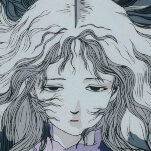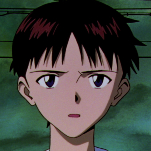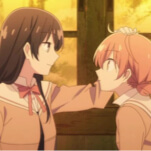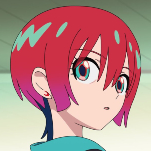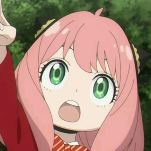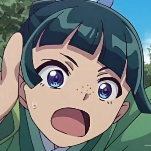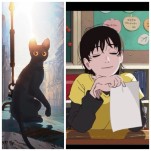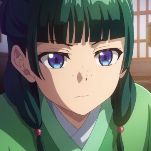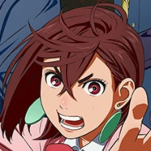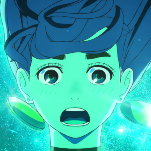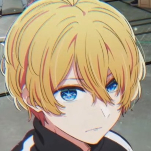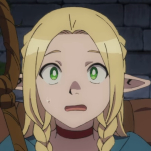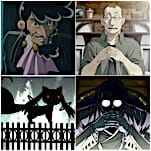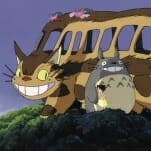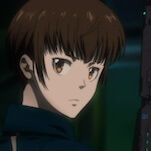4 Food Anime That Will Make You Drool and Cry
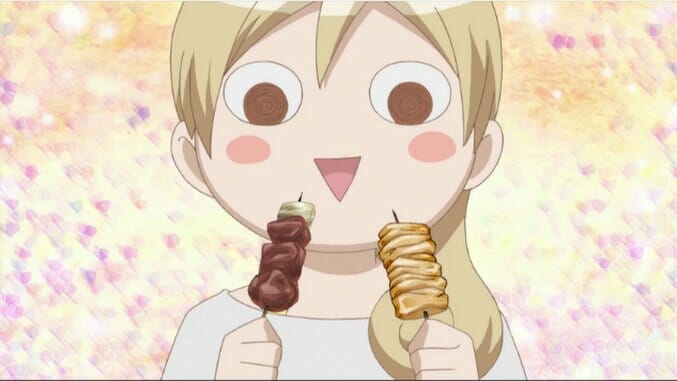
If you’re not interested in cutthroat competition, cooking lessons taught at countertops, guys in sunglasses hooting at barbecue plates or worshipping at the altars of chef-gods, American food television can feel like a desert. Outside of the ill-fated No Reservations, the show based on Anthony Bourdain’s book of the same name, there isn’t much television that uses food and cooking for storytelling purposes or that actively engages with the deep, visceral reasons why food matters to people and culture.
But across the Pacific, Japanese television viewers have been able to treat themselves to a multitude of shows, both live-action and animated, that dramatize culinary exploration, showcase historical cuisine, and provide meaningful context to everyday dishes. Food anime in particular are able to tell really interesting stories, and if you’ve seen any Studio Ghibli films, you’ve already gotten a glimpse of how lovely it can be to see food beautifully animated. Once you check out these shows, which are now available to stream with English subtitles on Crunchyroll, you’ll be amazed at what you’ve been missing.
1. Wakakozake
If it’s possible to call any television series poetry, Wakakozake is a prime example. Each episode of this show feels like a short poem about sakana, or Japanese bar food. Every two-minute episode follows the same basic formula: Wakako, a young office lady, goes out to a different izakaya every night after work and orders a drink and a snack. She takes a bite of her food, then takes a sip of her drink, musing on the pairing and sometimes, her life in general. Offering up reflections on the best way to eat fried salmon (i.e. not with rice, you savage) and the ideal cocktail to have with potato salad, Wakako is both an everywoman and aesthete: the perfect drinking buddy.
2. Silver Spoon Set at an agricultural high school — just how many of these are there in Japan? — this anime follows the school life of Yugo Hachiken, an clueless city kid who ends up learning firsthand just where food comes from. Mirroring Hachiken’s education, the show takes most of the romance out of the farm-to-table philosophy, emphasizing the hard work and know-how required to make farm life sustainable. For instance, one of the major storylines of the first season involves a class project where the students raise piglets from birth to slaughter; this might not be a great show for vegans, but it does go deep into the complicated feelings that can accompany this process.
Set at an agricultural high school — just how many of these are there in Japan? — this anime follows the school life of Yugo Hachiken, an clueless city kid who ends up learning firsthand just where food comes from. Mirroring Hachiken’s education, the show takes most of the romance out of the farm-to-table philosophy, emphasizing the hard work and know-how required to make farm life sustainable. For instance, one of the major storylines of the first season involves a class project where the students raise piglets from birth to slaughter; this might not be a great show for vegans, but it does go deep into the complicated feelings that can accompany this process.
-

-

-

-

-

-

-

-

-

-

-

-

-

-

-

-

-

-

-

-

-

-

-

-

-

-

-

-

-

-

-

-

-

-

-

-

-

-

-

-

 This is the definitive crying while eating show. Its story is a heartfelt attempt to answer the question of why we find it so satisfying to cook with and for other people. In it, a high school teacher mourns the death of his wife and learns how to enjoy cooking and eating together with his preschool-aged daughter. One of his students, a latchkey kid with divorced parents, offers up her family’s dormant restaurant as the setting for weekly cooking projects. Fittingly, they start by cooking plain white rice.
This is the definitive crying while eating show. Its story is a heartfelt attempt to answer the question of why we find it so satisfying to cook with and for other people. In it, a high school teacher mourns the death of his wife and learns how to enjoy cooking and eating together with his preschool-aged daughter. One of his students, a latchkey kid with divorced parents, offers up her family’s dormant restaurant as the setting for weekly cooking projects. Fittingly, they start by cooking plain white rice.  The premise of this show is absurd, but genius: a student at an agricultural university has the unique ability to see microbes — yeasts, molds, bacteria, viruses — with the naked eye, and of course they’re adorable and speak in really cute voices. The show naturally has a focus on food science, with the academic setting lending itself well to practical demonstrations. The cast of characters all have an infectious passion for fermentation, and following them as they do things like experiment with illicit sake brewing and feast on the guts of lactofermented birds buried in the corpse of a seal is both illuminating and a bit grody. In this way, microbes and the ways in which they bring about changes in the world around them make convincing plot devices and are given as much weight in the story as the interpersonal drama. Think of it as a cuter, more memorable take on using those giant molecule models in chemistry class.
The premise of this show is absurd, but genius: a student at an agricultural university has the unique ability to see microbes — yeasts, molds, bacteria, viruses — with the naked eye, and of course they’re adorable and speak in really cute voices. The show naturally has a focus on food science, with the academic setting lending itself well to practical demonstrations. The cast of characters all have an infectious passion for fermentation, and following them as they do things like experiment with illicit sake brewing and feast on the guts of lactofermented birds buried in the corpse of a seal is both illuminating and a bit grody. In this way, microbes and the ways in which they bring about changes in the world around them make convincing plot devices and are given as much weight in the story as the interpersonal drama. Think of it as a cuter, more memorable take on using those giant molecule models in chemistry class. 